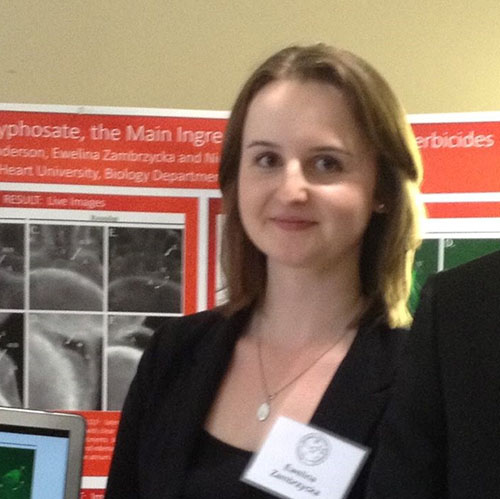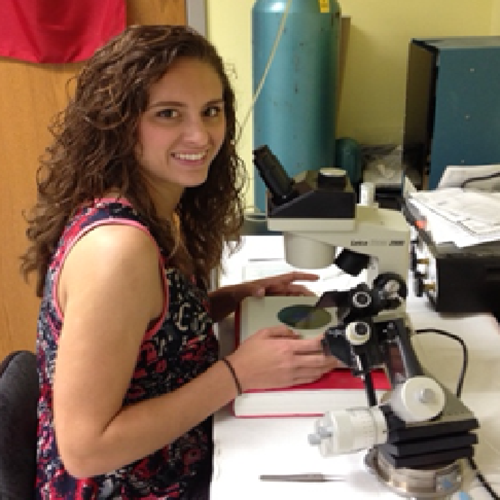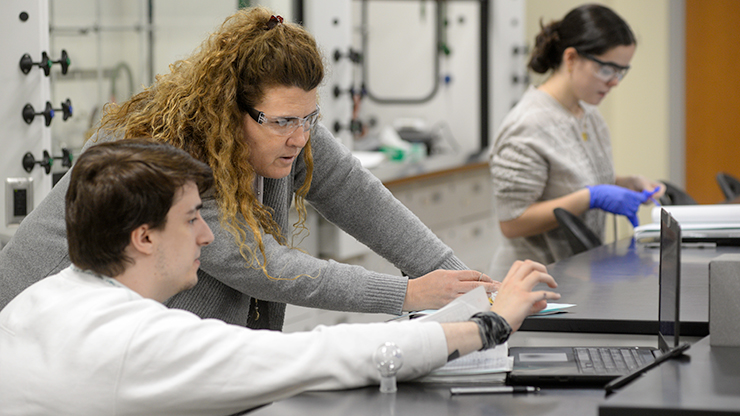BS in Molecular & Cellular Biology
The fast-paced world of the molecular and cellular sciences is greatly advancing our understanding of complex processes at all levels of biological organization ranging from the molecular to the ecosystem levels, as well as using cutting-edge techniques to address real-world problems in biomedical, industrial, and ecological settings. At Sacred Heart University, Molecular & Cellular Biology majors will make meaningful contributions to these fields through their participation in research teams of fellow undergraduates and biology faculty.
Why Earn Your BS in Molecular & Cellular Biology at Sacred Heart?
The Molecular & Cellular Biology major is interdisciplinary, combining a rigorous grounding in the foundational principles of biological science at all scales of organization from molecules to ecosystems with significant coursework in cellular and molecular biology. Through Sacred Heart's program, you’ll gain extensive research experience in elective labs and through supervised research with biology faculty or internships with local companies making use of molecular and cellular methods in their business (e.g., pharmaceutical and biotechnology companies, breweries, hospitals).
Students are encouraged to broaden their perspectives by spending a semester on the SHU campus in Dingle, Ireland.
Dual Degree Program Options for Molecular & Cellular Biology Majors
Sacred Heart University’s dual degree programs provide a defined pathway for incoming freshmen to move seamlessly from an undergraduate to a graduate degree.
While some of our dual degree programs require specific undergraduate majors, others are open to almost all undergraduate disciplines. Apply to a dual degree program as an incoming freshman and you’ll have the opportunity to be admitted directly into the graduate program of your choice at the same time as your admission as an undergraduate student. Students are encouraged to reach out to your admissions counselor to discuss dual degree options.
Choose from the following areas of exploration
- Take core courses in molecular biology or applied molecular genetics and cell biology.
- Take elective courses in cancer biology, pharmacology, developmental biology and neurobiology.
- Explore opportunities to perform research on 1) the impacts of environmental toxins and pharmaceuticals on embryonic development, 2) the effects of natural food chemicals on proliferation and differentiation of mouse skeletal myoblasts, 3) the sorting and trafficking of membrane proteins in the development and maintenance of neuronal polarity, or 4) the expression of circulating cancer biomarkers in canine tumors, or 5) the role of biological sex on stress- and prefrontal cortex-related psychopathology.
- Take courses in developmental biology, evolution and evolutionary medicine and topics in evolution.
- Conduct research on genes involved in early neural embryonic patterning in zebrafish, investigate the changes in genes and the interactions between genes and gene products that result in evolutionary change in the development of vertebrate limb morphology, or explore the evolution of gene regulatory networks in morphogenetic processes in elegans and related nematode species.
- Take courses in microbiology, virology and immunology.
- Take courses on our Dingle, Ireland campus: Irish Pubs, Pints, and Poitín; Feast, Famine, Fever and Fermentation.
- Participate in the DNA sequence-based investigation of the effects of development on river microbial communities, the identification and characterization of new brewing yeasts and the microbial communities in “wild” fermentations, investigation of the genetic control of sexual development in basidiomycete fungi, or surveys and phylogenetic studies of tick-borne viruses in Connecticut.
- Participate in SHU's Brewing Science Certificate program.
- Take courses in topics in genetics, genomics and bioinformatics, and biostatistics.
- Take a course on our Dingle, Ireland campus: Wild Irish Genes
- Gain lab experience in population and conservation genetics
- Perform research on the genetic control of sexual development in basidiomycete fungi, explore the genes involved in early neural embryonic patterning in zebrafish, investigate gene changes and interactions between genes and gene products that result in evolutionary change in the development of vertebrate limb morphology, or explore the evolution of gene regulatory networks in morphogenetic processes in C. elegans and related nematode species.
- Take courses in medical pharmacology and environmental toxicology.
- Conduct research investigating the effects of environmental toxins and pharmaceuticals on embryonic development or study the effects chemicals have on larval behavior.
As a Molecular & Cellular Biology major at Sacred Heart, you can also:
- Benefit from small class sizes that are interactive and engaging in the classroom, laboratory or the field.
- Learn from accomplished faculty who are practitioners in their field.
- Gain foundational knowledge in molecular and cellular biology, microbiology, bioinformatics and biochemistry.
- Participate in laboratory studies involving nucleic acid or protein extraction, PCR, electrophoresis, fluorescent imaging of cells and tissues, nucleic acid sequencing, bioinformatics, cell culture, and more.
- Participate in paid summer research programs through faculty grants and SHU’s College of Arts & Sciences Undergraduate Research Initiative.
- Have opportunities to take short, two-week courses in Dingle, Ireland.
- Learn computer science and software skills in data management, statistical analyses, bioinformatics, SPSS, graphing techniques, Microsoft Office Suite software (Word, Excel and PowerPoint).
- Participate in various clubs and organizations, such as the Biology Club, Green SHUs, Beta Beta Beta, the National Biological Honor Society and the American Medical Student Association.
Gain real-world experience with research or an internship in the field
Sacred Heart Molecular & Cellular Biology majors are required to complete undergraduate research or an internship.
- DNA sequence-based investigation of the effects of development on river microbial communities
- Identification and characterization of new brewing yeasts and the microbial communities in “wild” fermentations
- The genetic control of sexual development in basidiomycete fungi
- effects of natural food chemicals on proliferation and differentiation of mouse skeletal myoblasts
- The genes involved in early neural embryonic patterning in zebrafish
- The effects of environmental toxins and pharmaceuticals on embryonic development or study the effects chemicals have on larval behavior
- Gene changes and the interactions between genes and gene products that result in evolutionary change in the development of vertebrate limb morphology
- Sorting and trafficking of membrane proteins in the development and maintenance of neuronal polarity
- Use of genetic and genomic techniques to investigate the evolution of gene regulatory networks and the functional role that genes within the networks play during morphogenesis.
- The expression of circulating cancer biomarkers in canine tumors
- surveys and phylogenetic studies of tick-borne viruses in Connecticut
- The role of biological sex on stress- and prefrontal cortex-related psychopathology.
- Bristol Myers Squibb
- Foundation Medicine, Inc.
- MIT Lincoln Laboratory
- Pfizer
- Two Roads Brewing
- Unilever Corporation
Graduate ready for a career or further your study
The Molecular and Cellular Biology major will prepare you for employment in companies and institutions that use molecular and cellular methods in their business (e.g., pharmaceutical and biotechnology companies, breweries, hospitals, conservation organizations), or for graduate or professional training in the biomedical sciences, environmental genomics, or bioinformatics.
- Sacred Heart University Physician Associate Program
- City University of New York
- Lewis Katz School of Medicine at Temple University
- New England College of Optometry
- New York Institute of Technology
- North Carolina State College of Veterinary Medicine
- Philadelphia College of Osteopathic Medicine
- Purdue University College of Veterinary Medicine & Teaching Hospital
- Quinnipiac University School of Medicine
- Rowan University School of Osteopathic Medicine
- St. George's University School of Medicine
- University of Alabama
- Yale University
- Federal (e.g. Centers for Disease Control), state, and local governments
- Scientific and technical consulting firms (e.g., Heidelberg Engineering)
- Research institutes (e.g., Bigelow Laboratory for Ocean Sciences)
- Clinical institutions (e.g., Lehigh Valley Health Network, Northwell Health, Ocean State Eyecare, SpecialtyCare, Westchester Medical Center)
- Educational institutions (e.g., Stony Brook University)
- Pharmaceutical companies
- Biotechnology companies (e.g., Amgen, Medtronic)
The Bureau of Labor Statistics predicts a six percent growth in the field of medical science (biomedical sciences) by 2029. The ongoing need to treat and/or cure infectious, inherited, and acquired diseases of humans and animals through cutting-edge technologies like gene editing, next-generation sequencing, single cell techniques, and the development of new pharmacological approaches will continue to drive hiring in this area. (source)
As a student at SHU I was always fascinated with detail. Detail in relation to art, conversation, human body, belief system of the university as well as sciences. The greatest depth and fascination of detail came however from my major in Molecular and Cellular Biology. I found what truly fouls most if not all processes – it’s not only biology, it’s so much more. The courses all lined up to create a whole, they pushed me and challenged me shaping a stronger individual. As a student on the pre-med track I was able to grow with my major. The extent of information given and the space created for questions were two key elements which from the beginning grabbed my attention and kept me engaged. Shortly after finishing my first term of medical school I can say with confidence that I’m thankful for the Molecular and Cellular Biology major at SHU.
I graduated from SHU in 2012 and started graduate school the same year, completing my Ph.D. in 2018. I now work for a medical communications agency that specializes in peer-to-peer marketing in the pharmaceutical industry. The advanced courses I took as a biology major at Sacred Heart and the independent research I performed effectively prepared me for my graduate research studies and a career in the industry. I was fortunate to gain experience with a suite of molecular techniques that most undergraduates do not have the opportunity to learn. More importantly, though, I learned to take initiative, think critically, and practice good science. In my research and in many of my classes, I was forced to solve my own problems and make my own decisions. This helped me develop a sense of ownership over my work. Lastly, as a [research] student, I was fortunate to have the opportunity to carry out long-term research projects. I am grateful to have gotten a “small-school experience,” with a lot of direct communication and mentorship from a faculty of dedicated, approachable mentors, and to have been so well-prepared to continue my academic career at a large research institution.
Where Can You Go with a Bachelor's in Molecular & Cellular Biology
Majoring in molecular & cellular biology paves the way for you to advance your career through combined programs and advanced degree pathways.
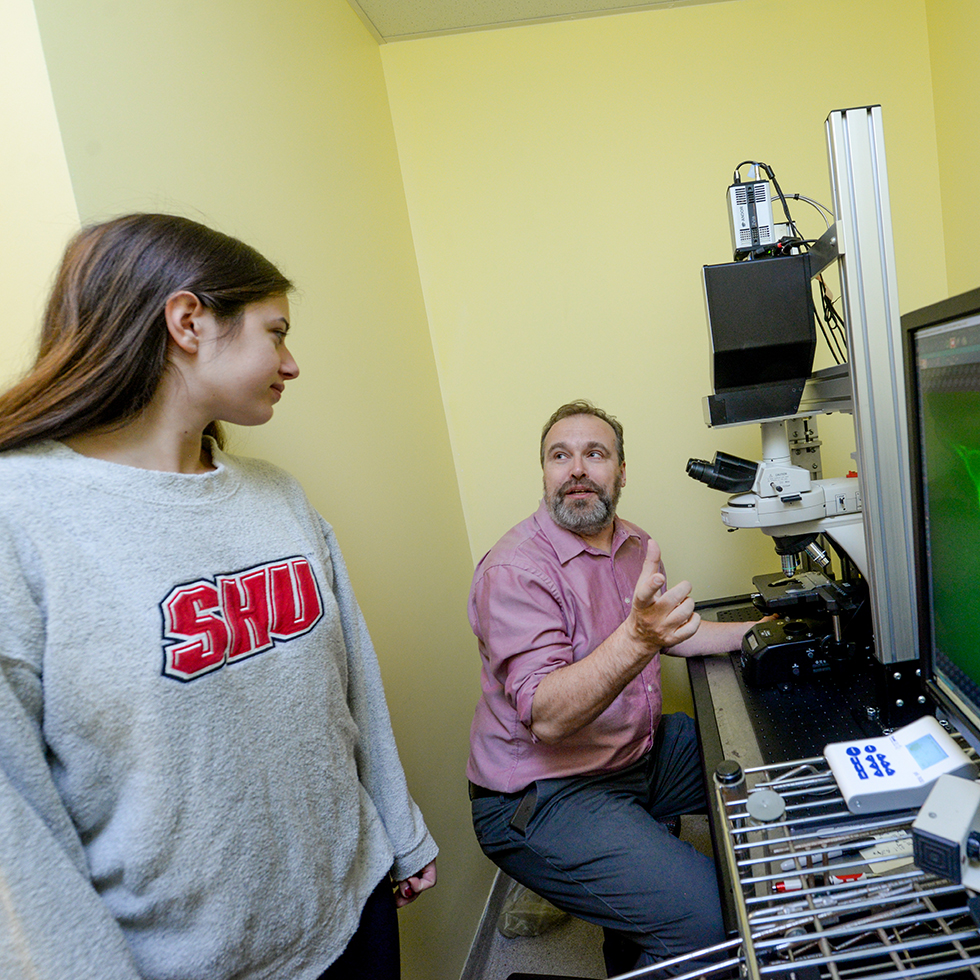
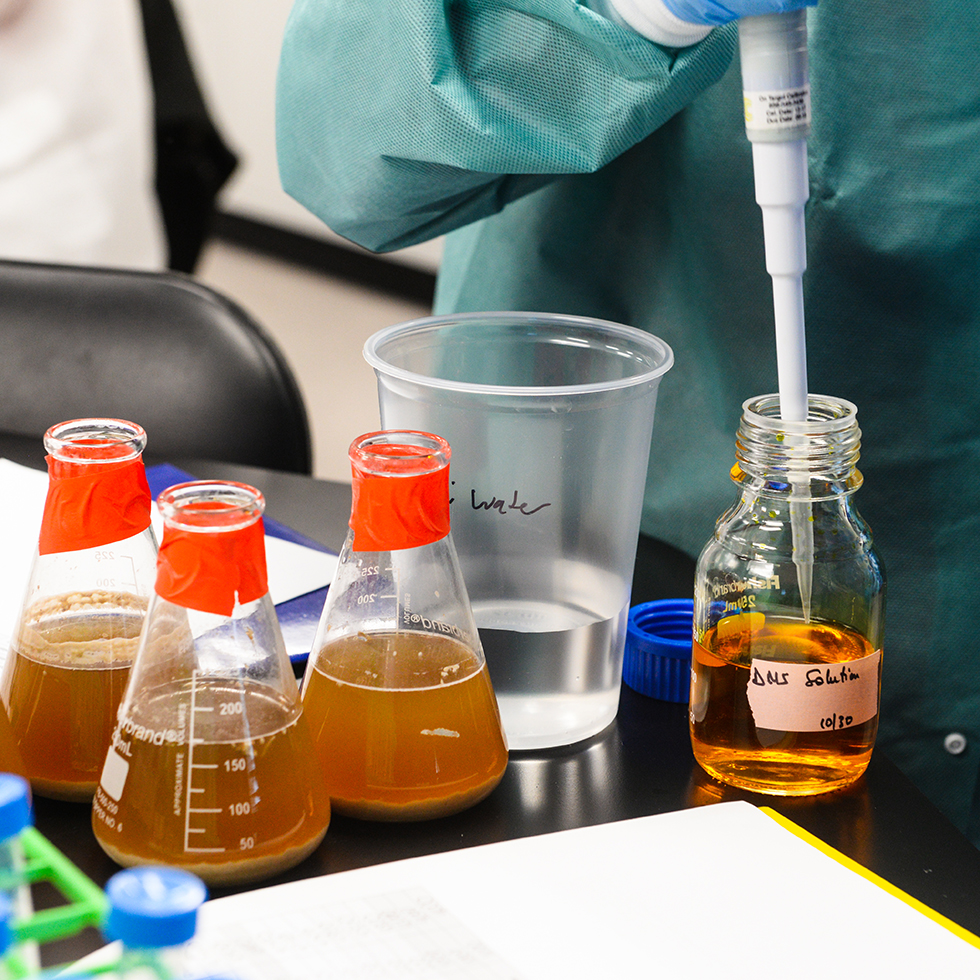
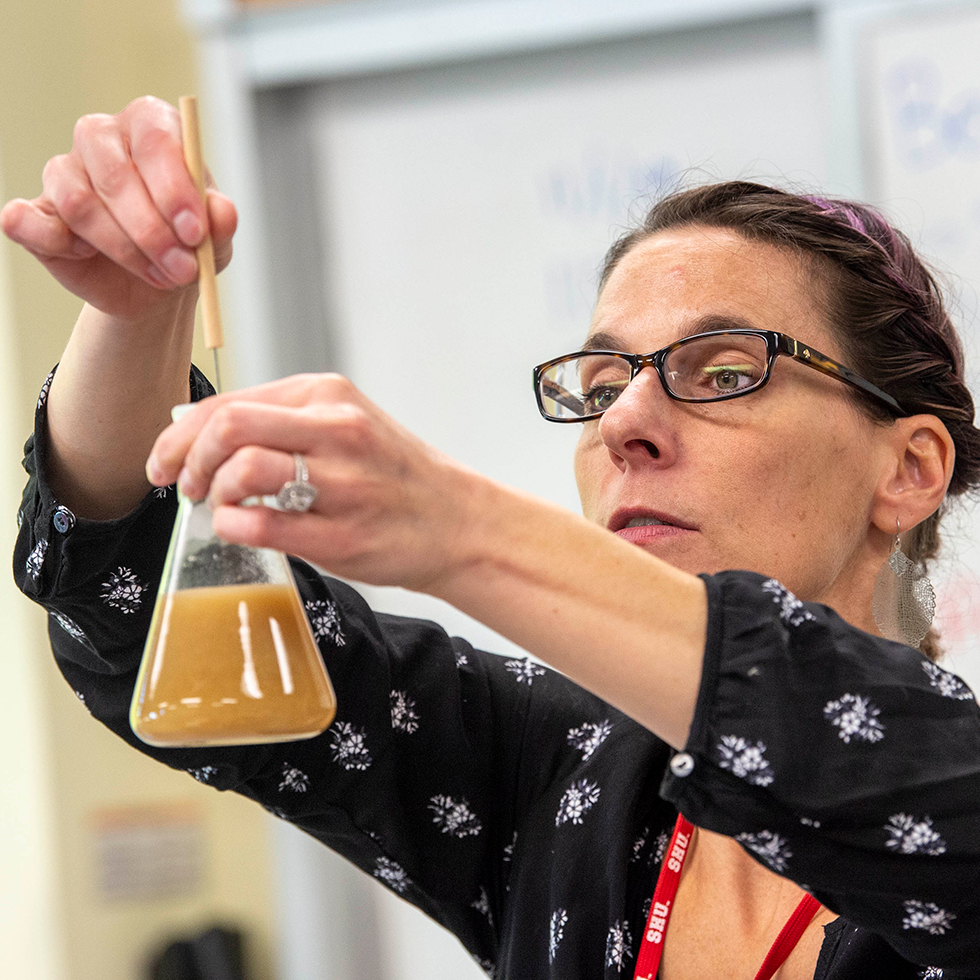
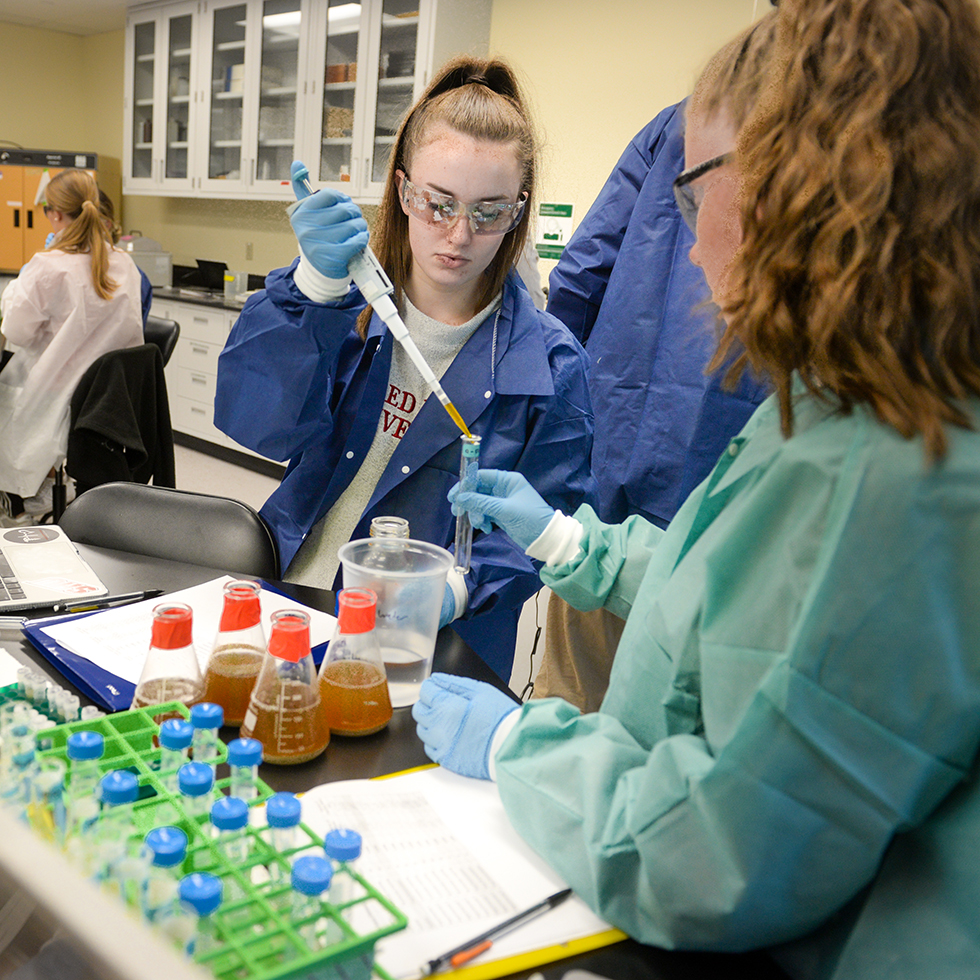
Molecular & Cellular Biology
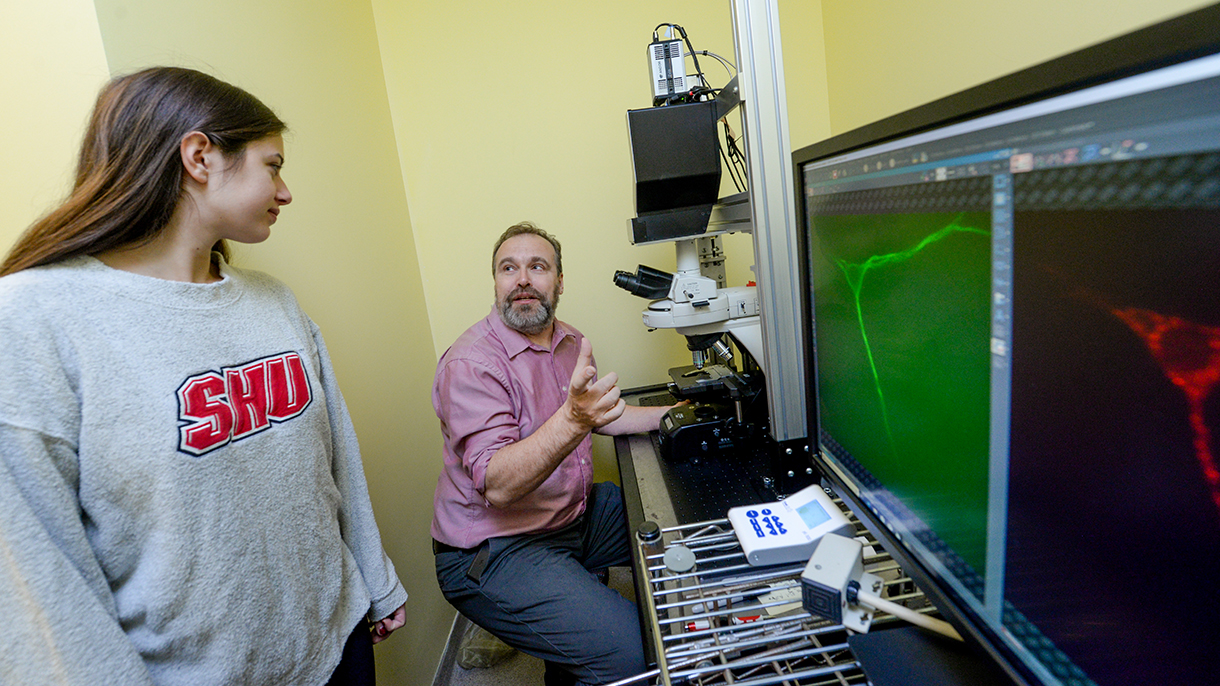
Sacred Heart University biology student working in a lab
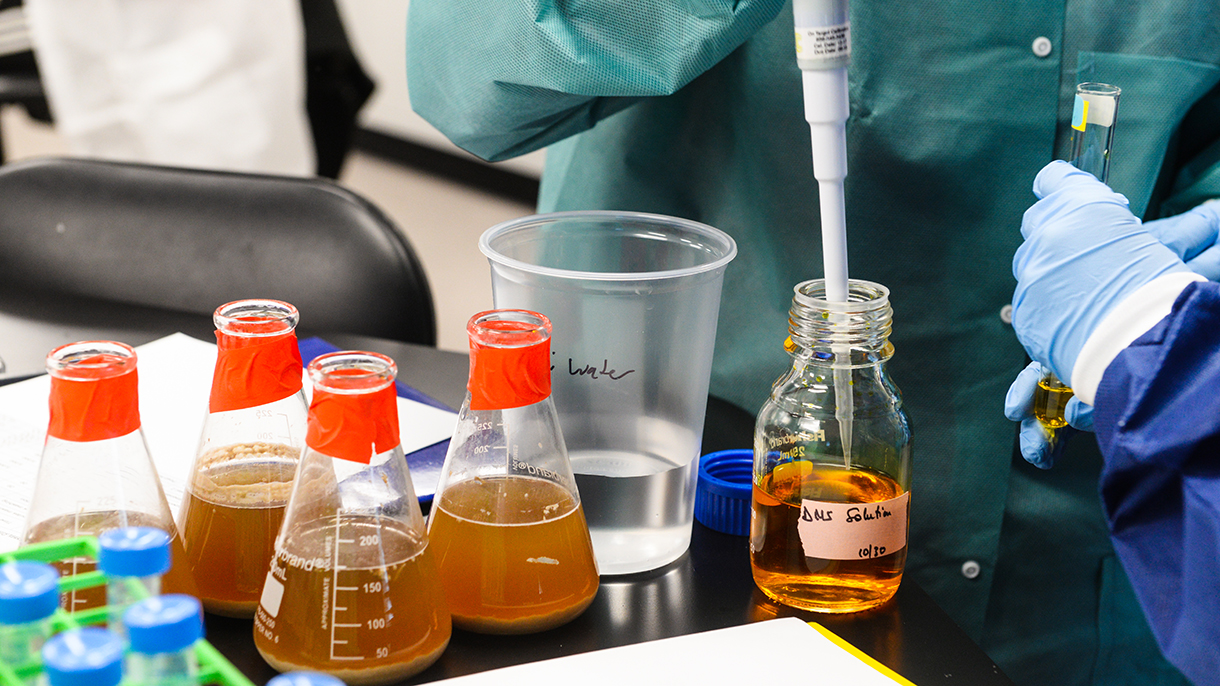
Biology lab at Sacred Heart University
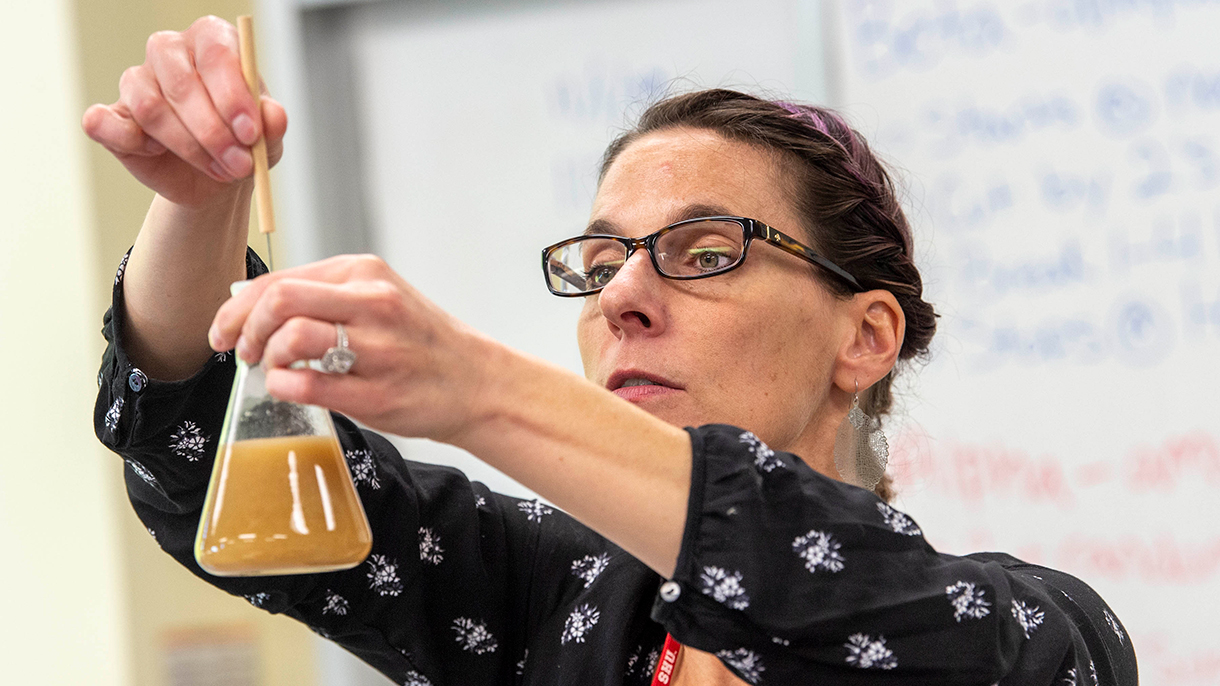
Sacred Heart University biology professor
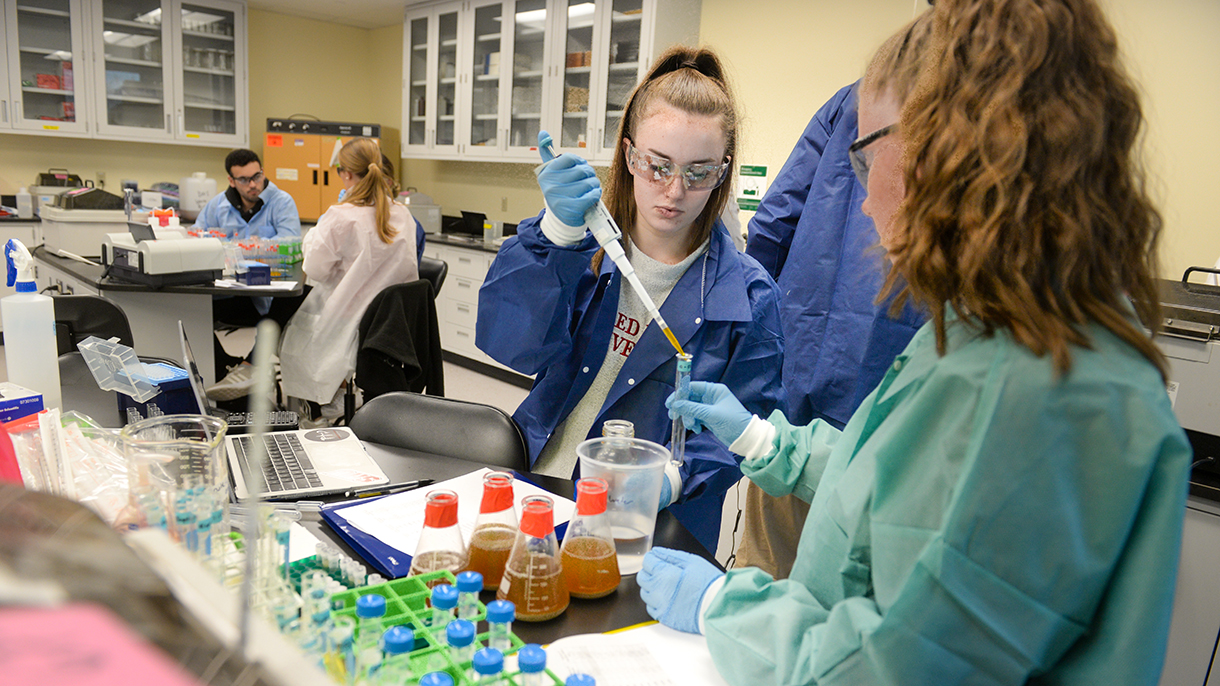
Biology students at Sacred Heart University
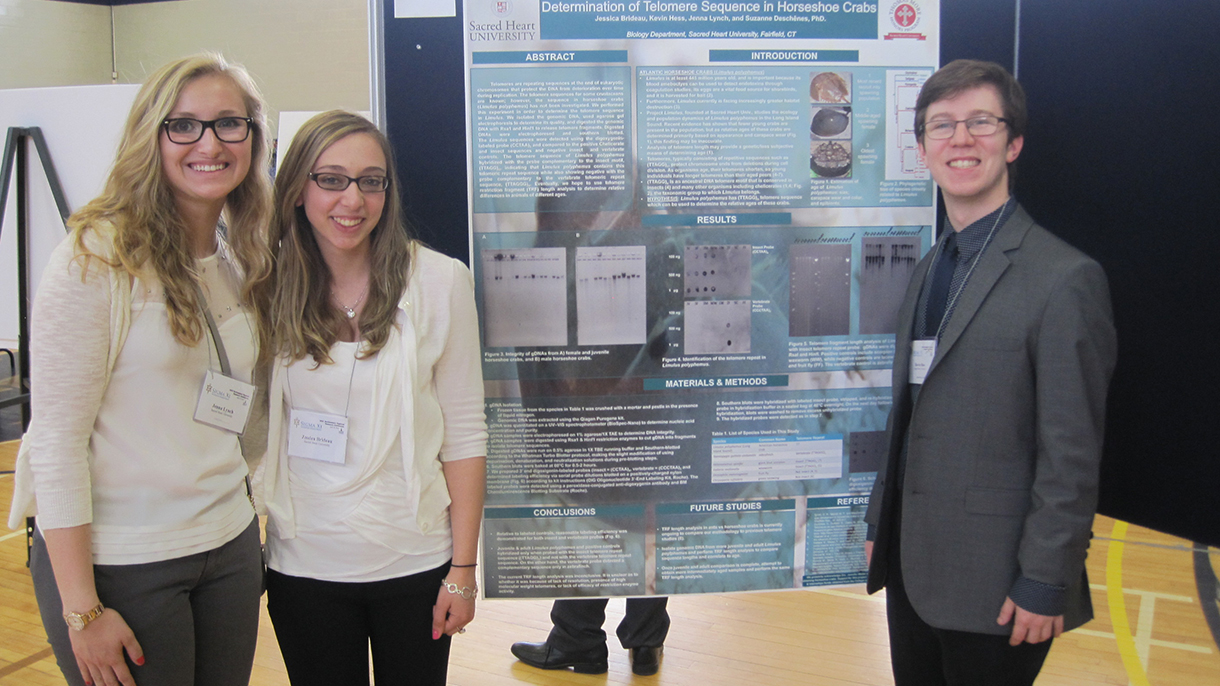
Biology students presenting their research project
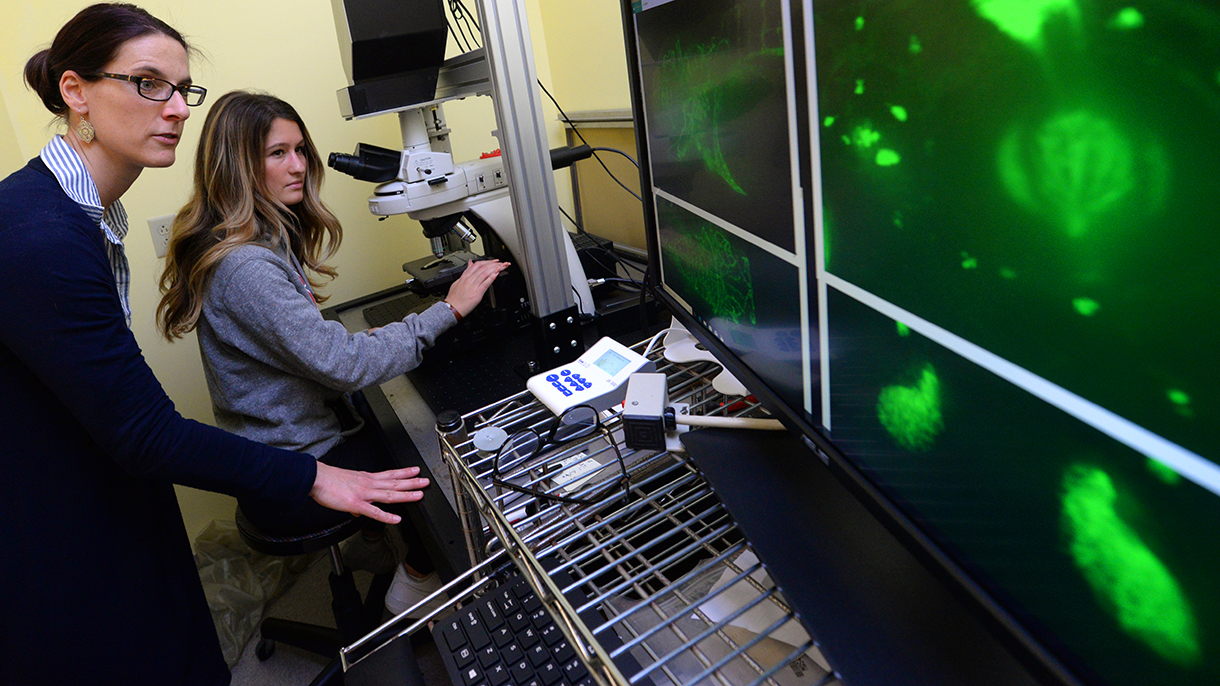
Biology students researching in a lab
More Information
The Latest in Biology
View More News-
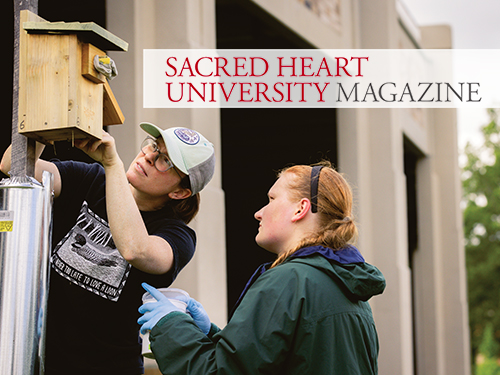
Learning to Fly
Academics, Faculty & Staff Spotlight, Student Spotlight & OutcomesPublished:A dedicated mentor's fast-growing research project gives students the chance to take wing as scientists. -

Global Service-Learning Reaches Kenya
Academics, Campus Life, Community OutreachPublished:Seven students joined SHU’s first Africa-based service-learning trip to support girls and families in Kenya -
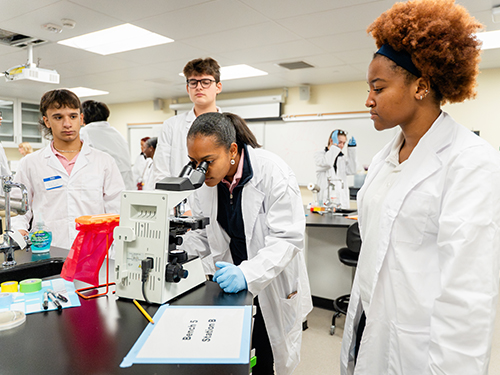
Notre Dame Prep Students Explore Biology at SHU
AcademicsPublished:Students conducted lab experiments and learned about anatomy and physiology in SHU’s state-of-the-art classrooms
